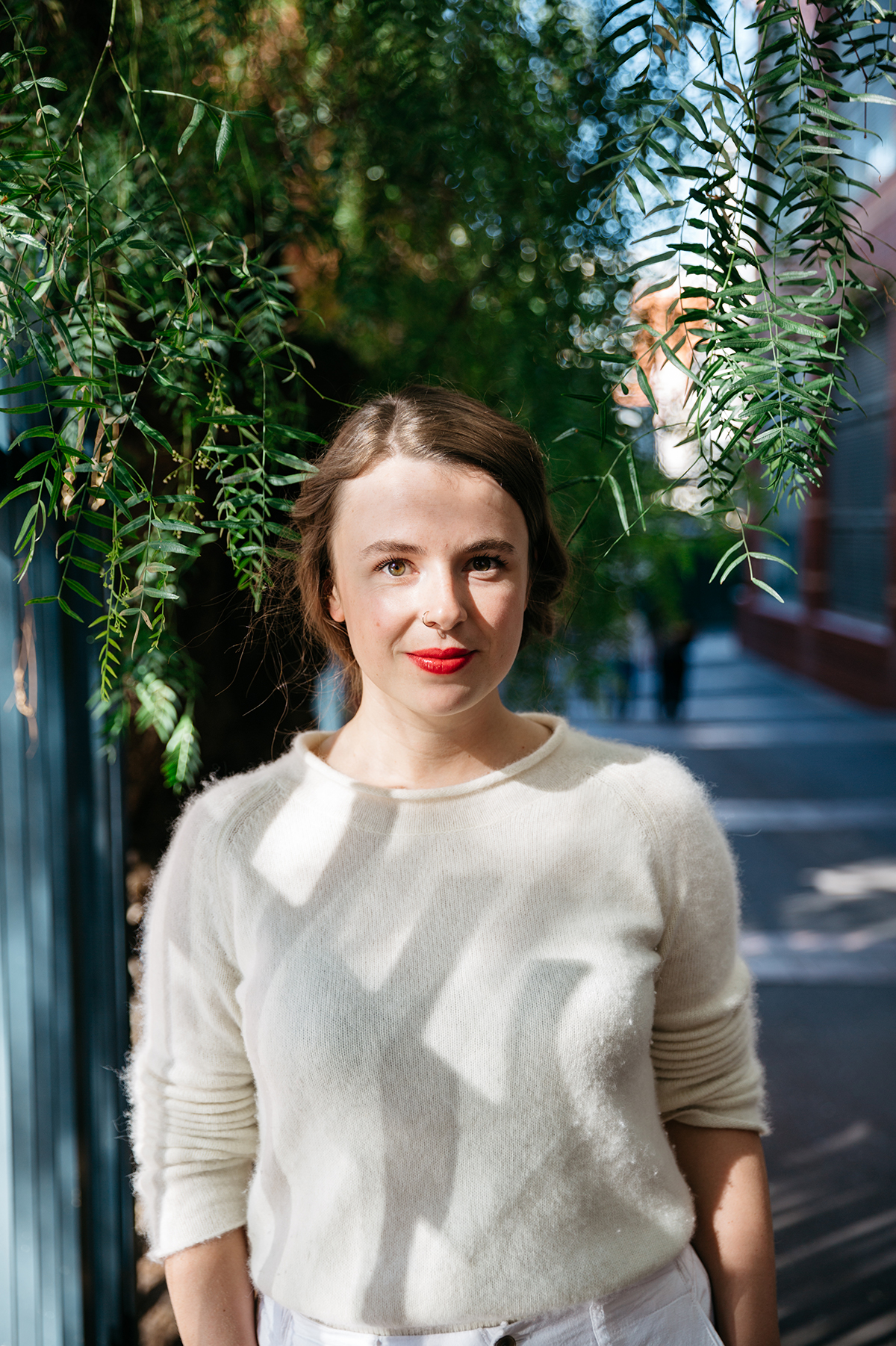“Somebody actually told me to start a podcast,” Bell tells The Adelaide Review. “It was one of the many fantastic women that I was working with at [retailer] Aesop. I was having these great, really sprawling, intelligent discussions with her, and she said to me, basically, ‘you should be recording these conversations, because you have these conversations a lot with women’.”
So she did. In each episode of Gate Close Panic, Bell drops in on a new subject to ask what they do, and how they came to do it. The tone is relaxed and conversational as Bell and her interviewees discuss their diverse and often unexpected career trajectories over a kitchen table, living room or in the subject’s workplace (expect the occasional mid-episode interruption from a co-worker, pet or the patter of footsteps outside).
For Bell, a sociology major who found herself facing that familiar post-graduation crossroad, it was at first an opportunity to ask the kind of career questions that don’t often come up at the pub. “People just don’t ask enough questions,” she says. “Those kinds of questions might feel prying. I like those questions, and I like those conversations.”
 Gate Close Panic is currently in its second season
Gate Close Panic is currently in its second season
Now in its second season, the result is a 26 episode spoken directory of women and non-binary South Australians winning at work. “Obviously when I started it was looking through my friends, and friends of friends who I knew were making all of their money doing something that they really wanted to do – that’s really the criteria for the show.” In typical Adelaide fashion, that pool has gradually widened to include research scientists, social workers, artists, restaurant managers, and CEOs.
“The reality is our social worlds as adults can be quite limited,” she says. “We often end up interacting with people who are in the same or very similar careers to us, which maybe quells a desire to ask those sorts of questions; you assume you already know people’s stories.”
By digging a little deeper, the show results in some often candid and surprising revelations, and the recurring realisation that there is no one set path to, or definition of, success. “The podcasts I really like are the ones that feel like you’re just in a conversation with two people, you feel like you could chime in on. That’s what I wanted the podcast to sound like,” she explains. “Often after I’ve stopped recording, all this great stuff comes out, that they might have been holding back. But it’s nice that it affords guests the opportunity to talk about stuff that no one’s really asking them about.”
 Seren Bell
Seren Bell
Inspired by the likes of US podcast giant Gimlet Media and Starving Artist by Melbourne’s Honor Eastly, Gate Close Panic is one of many emerging independent Australian podcasts making art out of genuine conversation and a certain embrace of the unpolished. “Honestly [at first] I could not afford to do it in a studio,” she says of the initial choice to set each interview in a personal space. “That being said, now that I’m used to interviewing people in a domestic setting – it’s always either at my house or theirs – I realise how important that is to the quality of conversation you have. When you’re just sitting on a couch with somebody the way they talk to you is different, it’s a lot more intimate. I wouldn’t change it. It feels kind of comforting.”
‘Gate close panic’, Bell says, is a rough translation of ‘torschlusspanik’ – another one of those wonderful, highly specific German words. “The modern definition is, loosely, the fear of your dwindling opportunities as you age,” she says. Fittingly, what was once a side project to help Bell alleviate that panic has turned into its own career path as she prepares to relocate to the United Kingdom to work in podcasting.
It echoes a theme that routinely emerges in the stories of Bell’s interviewees: gates can close, but they also open.
For listeners of:
The Cut on Tuesdays‘ ‘How I get it done’
Starving Artist by Honor Eastly
Essential episode:
Ying Di Yin, Sydney Opera House communications manager
Related Article
No shame:
Meet the First Nations podcast promoting healthy conversation and sex positivity
Walter is a writer and editor living on Kaurna Country.
Get the latest from The Adelaide Review in your inbox
Get the latest from The Adelaide Review in your inbox